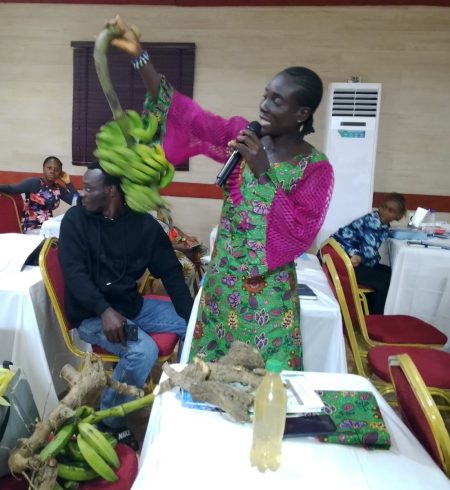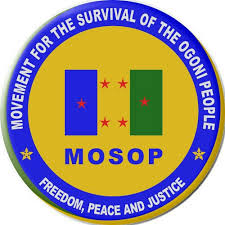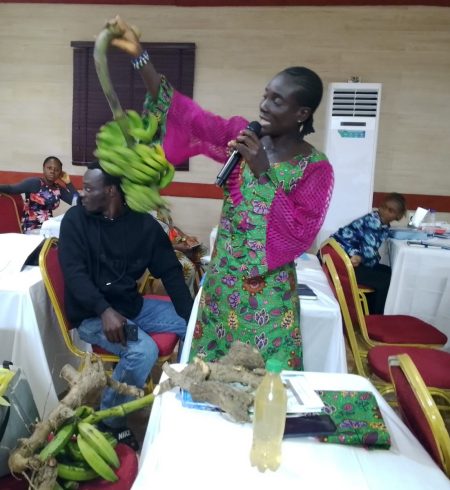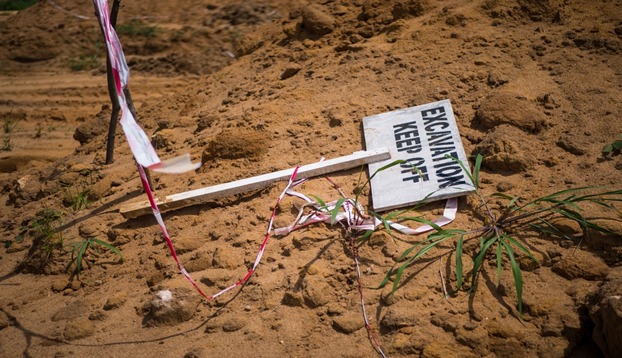
OpeOluwani Akintayo
Lagos — Fresh findings have revealed that the Hydrocarbon Pollution Remediation Project, HYPREP has failed to make clean portable drinking water available to the people of Ogoniland despite recommendation by the United Nations Environment Programme, UNEP report. This negligence is said to be a clog in the wheel of the cleanup exercise.
Information gathered has it that although millions has been allocated by HYPREP for provision of drinking water out of the ($360 billion) N1 billion takeoff fund provided by Shell Petroleum Development Company, SPDC and the federal government for the first phase of the exercise, however, Ogoniland is yet to be supplied, as the communities continue to consume contaminated water from surface and groundwater sources.
The UNEP report had identified two phases of intervention in Ogoniland. Phase 1 of the cleanup was for the emergency measures where provision of clean portable water was also listed. However, SweetcrudeReports found that the implementation of the emergency measures is ad hoc and selective, and only a few measures had been partially attempted while many others (including drinking water) are yet to be conceived.
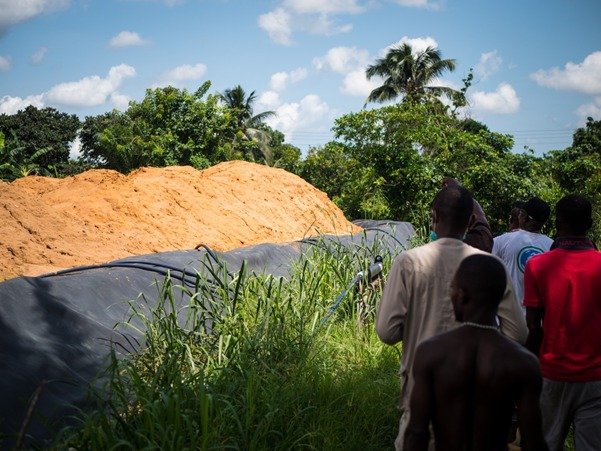
Environmental contamination caused by hydrocarbons has been an epidemic in the Nigeria Delta region. Following wide scale national and international agitations, the federal government commissioned the United Nations Environmental Programme, UNEP to undertake the environmental assessment of Ogoniland, leading to the establishment of HYPREP to implement the recommendations of the UNEP report. HYPREP has been in operations for over three years.
The UNEP report considered the provision of portable drinking water and the marking of drinking water wells where hydrocarbons were detected as urgent. This may be attributed to the risks faced by local communities who continue to drink benzene-laden water as a result of lack of alternative water supply.
Findings showed that while signposts can be sighted in few communities like Agbi and Ekpangbala, many residents there who cannot afford clean sachet water still consume water from the same sources because there are no alternatives.
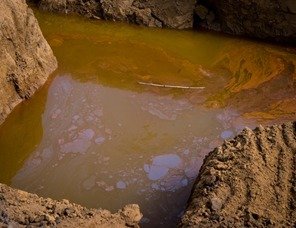
Although few polluted water signage have been posted in selected communities such as Bodo and Ekpangbala however; there are communities with extensive pollution (Gio and Kporghor) without signage.
The UNEP report was very clear on opening of a medical registry for the people of Nsisioken/Ogale given that their water consumption is 900 times greater than the World Health Organisation, WHO threshold.
Stakeholders have continued to raise concerns about HYPREP’s inability to provide adequate sources of drinking water to those households whose water supply is impacted despite having undertaken surveys of water wells in some communities including Agbi.
Although there is a partnership between HYPREP and the Rivers State Ministry of Water Resources and Rural Development however, findings revealed that no oil-impacted community in Ogoniland has been provided with portable drinking water from a different source as stated in the UNEP report, raising deeper concern among stakeholders.
Different stakeholders including the federal Ministry of environment and HYPREP have admitted that the process has been slow and that they are working to restructure the governance and operationalisation of the cleanup process.
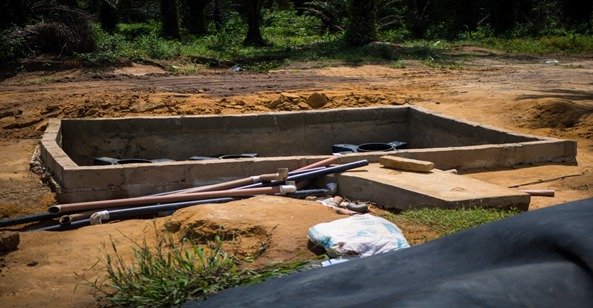
However, the restructuring process was yet to commence when HYPREP in July 2020, published a newspaper report stating that it had completed 70 percent of the first phase of the cleanup despite concerns highlighted by stakeholders that the cleanup process has been derailed.
The 70 percent cleanup completion claim is in contrast to an internal HYPREP document (seen by SweetcrudeReports) that indicated an assessment of progress of the cleanup by the various contractors- by April 2020 just over 40 percent of the cleanup of the 21 sites was done, with only four contractors having finished more than 60 percent while four contractors had finished less than 20 percent. While HYPREP’s assessment scale is unclear, it has further contracted another 36 contractors (6 to monitor groundwater and 29 to undertake remediation of mild contamination lots), but none to supply portable clean drinking water.
Some of the residents who pleaded anonymity due to fear of being persecuted told SweetcrudeReports in confidence that they had first started buying sachet water for drinking however, lack of funds had sometimes forced them to drink from nearby streams.
Findings showed that some of the residents who had spoken with media organisations in the past were sometimes bullied into silence.
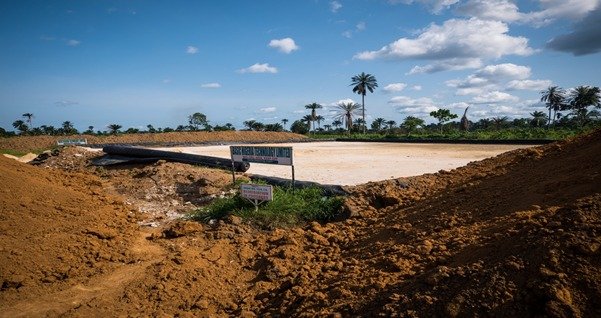
“We are yet to receive a drop of water from them (HYPREP) since they started the cleanup”, one of the residents said angrily while at the same time pleading not to be named.
Another added that the failing condition of the land and water has been a threat to their health.
“Our land and water no good again, and we dey sick sick up and down” an elderly woman told the reporter when asked how she had been coping.
“Here, we don’t have enough water to drink. We have learnt to manage water because we have to buy. No more fetching of water from the stream,” another added.
According to the UNEP report, average life expectancy in the Niger Delta had dropped to 40.
A study undertaken by the International Centre for Investigative Reporting, ICIR in March 2020 indicated the impact of oil pollution on public health and the urgent need to commence public health monitoring of Ogoniland. Blood samples of 50 people from Bolo, Goi, K-Dere and Mogho communities showed that three quarters had elevated Aspartate Aminotransferase, AST and nearly 40 percent had elevated Alanine Transaminase, ALT(five)- a potential indicator of kidney disease.
Investigation revealed that HYPREP has reportedly spent $38 billion in three years without provision of portable water as recommended by UNEP.
The Civil Society Legislative Advocacy Centre, CISLAC’s Executive Director, Auwal Ibrahim Musa told SweetcrudeReports via a telephone interview that the cleanup process is fraught with abnormalities.
“There is much to be done on both phases of the UNEP recommendations on Ogoniland. However, as a matter of urgency, HYPREP needs to provide a timeline for the provision of potable water to communities with polluted water in Eleme local council,” he said.
He also suggested that provision of additional signage for all contaminated water wells and polluted sites in Ogoniland be done.
“This should follow a comprehensive assessment of all water wells in the area as recommended by the UNEP report,” he added.
Mr. Akinbode Oluwafemi, Deputy Executive Director, Environmental Rights Action, ERA- a civil society group popularly known Friends of the Earth who have also been at the centre of the Niger Delta advocacy, said “it’s a yes and a no” when asked about his reaction to the water crisis in Ogoniland.
“It has been a debate between HYPREP and us in the Niger Delta,” he said, refusing to speak further. He then directed the reporter to speak with one of his colleagues, Kentebe Ebiaridor resident in Port Harcourt.
Mr. Ebiaridor told SweetcrudeReports that the bidding contract for water supply had just been concluded.
According to him, the water supply is expected to last between a period of 25-30 years as recommended by the UNEP report.
SweetcrudeReports later found out that six companies would be involved in the provision of water for the affected communities.
An activist, Celestine Akpobari told this newspaper that although HYPREP is yet to provide water however, they are at the last stage of the bidding process.
“You know the procurement process has stages. They did the last phase three weeks ago meaning that the award of the water contract will soon happen.”
When asked how much the water contract was worth he declined giving no specific figure.
“If it is more than 500 million then, it would have to be passed to the BPE and FEC for approval,” he said.
He clarified that the HYPREP 70 completion claim was for the first awarded 21 remediation of less complex sites and not the entire cleanup process.
SweetcrudeReports contacted the Spokesperson for HYPREP, Mr. Isah Wasa who said he was on leave and would not comment on why water supply was delayed to the affected communities. He however, obliged the reporter with contact of his assistant, Mr. Joseph Nafo.
Mr. Nafo also declined making any comment as regarding the water provision when asked why HYPREP did not supply the communities from the beginning of the remediation as recommended by UNEP.
“He is the spokesperson so he (Mr. Wasa) is in the best position to speak on this. Although he is on leave, he can still speak”, he said, directing the reporter to call back Mr. Wasa for his comment.
The Niger Delta with approximately 31 million people is the hub of crude oil production in Nigeria.
Hydrocarbon-contaminated sites in the region are commonplace due to over five decades of oil exploration activities. Crude oil exploration and exploitation in the region are undertaken with some level of disregard for basic principles of sustainable environmental management-leaving behind potentially polluted sites with various toxic hazardous chemicals, which has resulted in loss of livelihood and deprivation, and general lack of development in the region, according to a 2011 UNEP report.
